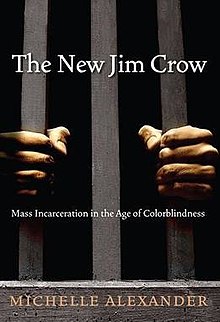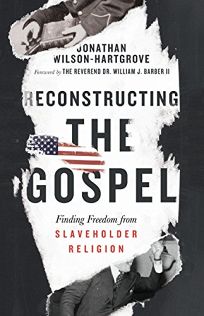Pastor's reflections
Monthly faith reflections from the pastor.
|
|
|
I love the book of Acts of the Apostles. It shows what radical lives the gospel and Spirit of Jesus empowered the apostles to live. And the reasons others opposed them seems shockingly relevant to here and now. Acts 16 tells about Paul the apostle and his partner, Silas. They met a young girl who was enslaved, to both humans and an unclean spirit. When Paul cast out the spirit, the human slaveholders revealed their values: profit over people. "But when her owners saw that their hope of making money was gone, they seized Paul and Silas and dragged them into the marketplace before the authorities. …they said, 'These men are disturbing our city!'” Then Paul and Silas were beaten badly and thrown into prison. But, you know, so was Jesus. "About midnight Paul and Silas were praying and singing hymns to God, and the prisoners were listening to them. Suddenly there was an earthquake, so powerful that the foundations of the prison were shaken; and immediately all the doors were opened and everyone’s chains unfastened." The resurrection earthquake! The power of Pentecost! “You have cast the mighty down from their thrones,” we sing during Holden Evening Prayer services, echoing Mary’s Song in Luke 1. Here, God cast those slaveholders and marketplace authorities down: by decisively liberating the prisoners, not by revenge. The story didn’t end here, though, because Paul and Silas made no escape. No, all the prisoners stayed put. Shaken awake, the jailer assumed the prisoners escaped and immediately became terrified. Of those slaveholders and their enabling authorities. Of the humiliation and brutality they’ll certainly unleash on him for his failure. He got ready to kill himself rather than face them. Just then, Paul and Silas interrupted. They told of a Lord of love and mercy, so unlike the slaveholders and their prisons. He immediately trusted in this Lord, and immediately he and his whole household are baptized. Liberated too. No one was free until everyone was free. What a marvelous story! Written, of course, to help us find God and God’s way in our world. Here’s what I take away:
I so identify with the jailer. The people disturbing our cities now remind me of how the Lord of love shook foundations for me, woke me up to racism, and gave me a choice to live for the one true God and serve slaveholders no more. Racism is a power-grab. It’s about plunder, not hate. Bianca Vazquez and Ta-Nehisi Coates woke me up to this. People with wealth, social status, and power invented the lie of race. They used it to maintain and expand their dominance. They still do.  he origins of race and slavery in America show this clearly. So some history, by way of Michelle Alexander’s book, The New Jim Crow. The “elites” of early colonial America were the “planter class” of European immigrants. Their tobacco plantations were the source and symbol of their wealth, power, and status. They needed land and cheap labor. Native Americans lived on the land the planter class wanted. Jealousy for that land (and for more wealth and power) led to the lie of “the civilized white man” and “red savages.” They planted the lie in the Bible (“red Canaanites”) and put the lie in the mouth of God. Then the lie justified plunder and genocide. For cheap labor, the planter class used indentured servants, a kind of temporary slaves. At first, indentured people were both European and African—poor Europeans who sold themselves for a chance at a better life and African captives. But then European and African indentured servants united in an uprising against the planter class. It failed. But alarmed, the planter class adopted a divide-and-conquer strategy to protect their wealth and power. Based on the lie of “white superiority” and “black inferiority,” they bribed poor Europeans with special privileges. They planted the lie in the Bible (“the curse of Ham”) and put the lie in the mouth of God. Then the lie justified slavery and plunder. The lie was written into the Constitution of the United States. The first presidents were members of the planter class. According to USA Today, George Washington was the wealthiest president ever, until Donald Trump was elected. Some might say this is revisionist history. It really is. Acts shows how the first apostles revised the history they thought they knew. The old stories of Abraham, Sarah, Moses had to be told anew, because of Jesus. William Sloane Coffin, pastor and peace activist, said: "There are three kinds of patriots, two bad, one good. The bad ones are the uncritical lovers and the loveless critics. Good patriots carry on a lover’s quarrel with their country, a reflection of God’s lover’s quarrel with the world."  This history is core to my own lover’s quarrel with our country. This history also sheds light on racism’s weakness and suggests a way forward:
I say all of this not to convince but because I am convicted. It’s taken me my whole life so far to unlearn the “history” and lose my “religion” and let the truth set me free. George Floyd and so many more have died in the meantime. “But if I build up again the very things that I once tore down, then I demonstrate that I am a transgressor.” –Paul, Galatians 2:18 “If you know these things, you are blessed if you do them.” –Jesus, John 13:17 “It is for us the living, rather, to be dedicated here to the unfinished work which they who fought here have thus far so nobly advanced. It is rather for us to be here dedicated to the great task remaining before us—that from these honored dead we take increased devotion to that cause for which they gave the last full measure of devotion—that we here highly resolve that these dead shall not have died in vain—that this nation, under God, shall have a new birth of freedom—and that government of the people, by the people, for the people, shall not perish from the earth.” –Abraham Lincoln, Gettysburg Address Thanks be to God. Pastor Clark Olson-Smith Comments are closed.
|
|
715 South Third Street, Clinton, IA 52732
at the foot of the south bridge
|

